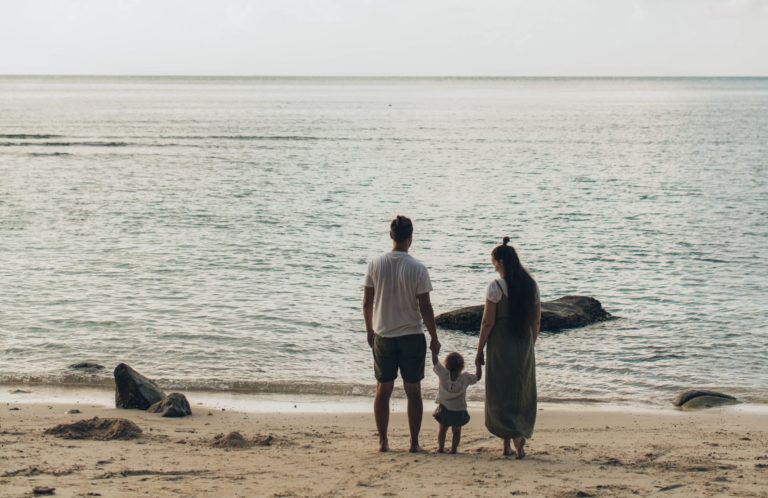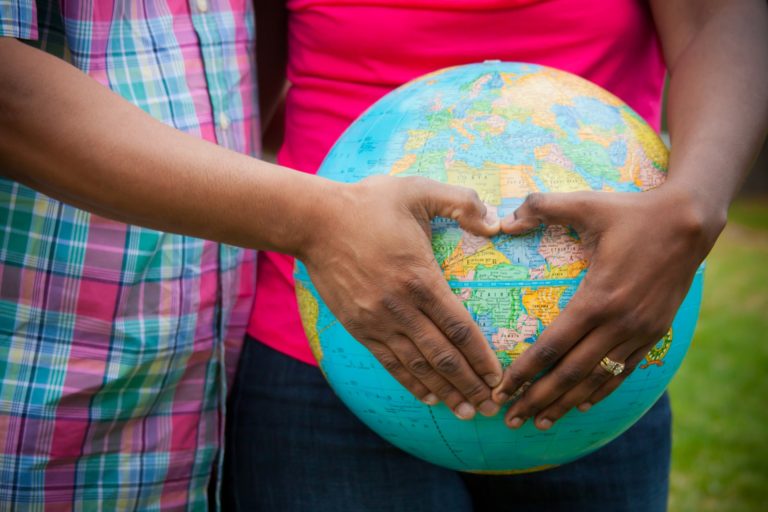
The process of bringing your fiancé to the US involves many steps and multiple phases. The process can be daunting and difficult to understand. One of the most common questions couples have is: What does the process entail?
First, you must file a
Form I-129F, Petition for Alien Fiancé(e). Along with the form, you and your fiancé(e) will also have to provide certain documentation showing your relationship and your intention to marry. Once your petition is filed, USCIS can approve it, deny it, or request more evidence from you. If approved, USCIS forwards your approved I-129F to the National Visa Center (NVC).
Once the NVC has your approved I-129F, they forward it to the embassy or consulate where your fiancé(e) plans to apply for their K-1 visa. At this point, the consulate will schedule an interview with your fiancé(e). At this interview, your fiancé(e) will likely be required to bring documents (like a medical evaluation) in addition to attending the interview. The government will ask primarily about your relationship to assess your intention to marry and spend a life together. If approved, the officer will grant your fiancé(e) a K-1 visa that is valid for six months and allows one entry in the United States.
Once the K-1 visa is granted, your fiancé(e) generally has six months to travel to the US. Once your fiancé(e) has entered the US, you have 90 days to get married. Thus, once a K-1 visa is granted, you as the petitioner and your fiancé(e) beneficiary are on a fairly strict timeline.
In addition to questions about the process in general, there are several other aspects that couples often have questions about.
What kinds of Processing Delays Can We Expect?
As is often the case with USCIS, applicants and petitioners can currently expect their cases to face processing delays. Generally, USCIS
processing times can be long—there are often backlogs of cases. Since March 2020, that problem has only been exacerbated by COVID-19. Depending on where USCIS sends your Form I-129F, the processing time can vary from as little as four months to as many as nine months or even more. On average, couples can expect their Form I-129F to be approved in about six months. Processing at the consulate, however, can take even longer due to pandemic restrictions and varies greatly depending on the consulate.
What is the Meet-in-Person Requirement?
Generally, to obtain a K-1 visa the applicants, the US fiancé(e) and the foreign national fiancé(e), must have physically met each other within 2 years from the date the Form I-129F is filed. Virtual meetings (Facetime, Skype, etc.) do not fulfill the in-person meeting requirement.
We couldn’t meet within the last 2 years, are there any exceptions?
If there are extenuating circumstances, fiancé(e)s may be granted a waiver to the in-person meeting requirement. There are two common extenuating circumstances that USCIS will consider waiving the requirement for: extreme hardship and cultural/religious traditions. If meeting in person would violate either of your cultural or religious norms or traditions, then USCIS will waive the meeting requirement.
Extreme hardship is a concept that is more difficult to define. It is truly a fact-specific argument, made on a case-by-case basis. However, there is one hardship we are all facing right now. One of the biggest hurdles couples trying to meet in person face is COVID-19. International travel has been difficult—in some cases impossible—since the pandemic began. The natural question to ask is: Does COVID constitute an extreme hardship that may waive the meeting requirement for couples?
The truth is, if international travel has been truly impossible, that’s a strong argument in favor of waiver. However, the government interprets this requirement very strictly. The reality of COVID is that it is an ever-changing situation where travel can be possible one day and limited the next. Therefore, USCIS could take the position that while you could not have travelled at one point, travel may have opened at another such that USCIS might be unwilling to grant a waiver on that basis. There certainly could be situations where COVID travel restrictions constitute extreme hardship—but your best bet is to avoid having to make that request by fulfilling the requirement.
What does the International Marriage Broker Act Require?
The International Marriage Broker Act requires that US officials provide foreign fiancé(e)s with information about their legal rights in addition to any criminal or domestic violence histories of their US fiancé. The purpose of IMBRA is to ensure foreign fiancés have access to complete information about their rights and as much information as possible about their US fiancé(e) and future spouse.
Foreign fiancé(e)s are informed basic legal protections in the US, regardless of their immigration status. They are informed that, no matter their status, they can call the police or obtain protection orders. Further, the US official should provide the foreign fiancé about how to seek help if the relationship were to become abusive.
IMBRA also specifically applies to international marriage brokers. International marriage brokers are any for-profit business that charges fees for matchmaking services between a US citizen and a foreign national.
8 U.S.C. § (e)(4). Importantly, the primary business must be international matchmaking – so would not include Match.com, eHarmony, Facebook, etc. International marriage brokers are
required to give foreign nationals background information on the US client who is using the broker’s services. They are also required to give the foreign national the USCIS pamphlet,
Information on the Legal Rights Available to Immigrant Victims of Domestic Violence in the United States and Facts about Immigrating on a Marriage-Based Visa. The pamphlet provides the foreign national with further information about their rights.
We were not able to get married within 90 days, what happens to my K-1 visa? Can I extend it?
The visa is valid only for 90 days. You must leave the U.S. if unable to get married within that time. You cannot extend the visa and will have to re-apply.
We got K-1 visa, we got married within 90 days, now how do we get the green card?
An application must be filed with USCIS. The U.S. citizen must include an “affidavit of support” showing income above 125% of the federal poverty guidelines and the application must establish that a bona fide marriage (i.e. not for the sole purpose of obtaining a green card) exists.
Can I work after we get married?
Not immediately. You must file a green card application and can request employment authorization as part of that process.
How We Can Help
The attorneys of Shihab Burke, LLC, Attorneys At Law have helped many couples navigate the complexities of the U.S. immigration process. Please call or email us for a consultation with an experienced family-based immigration attorney and learn more about the process of petitioning for your foreign-born fiancé.
Our immigration attorneys will review your forms and applications for thoroughness and accuracy. Immigration laws will continually change, but an experienced immigration attorney will always be able to give you the most up-to-date immigration advice you need.
We have offices in
Dublin and
Columbus, Ohio,
Michigan, and
Texas. But our
full suite of immigration law services is available to clients nationwide and even around the world.
Contact us today!
 The process of bringing your fiancé to the US involves many steps and multiple phases. The process can be daunting and difficult to understand. One of the most common questions couples have is: What does the process entail?
First, you must file a Form I-129F, Petition for Alien Fiancé(e). Along with the form, you and your fiancé(e) will also have to provide certain documentation showing your relationship and your intention to marry. Once your petition is filed, USCIS can approve it, deny it, or request more evidence from you. If approved, USCIS forwards your approved I-129F to the National Visa Center (NVC).
Once the NVC has your approved I-129F, they forward it to the embassy or consulate where your fiancé(e) plans to apply for their K-1 visa. At this point, the consulate will schedule an interview with your fiancé(e). At this interview, your fiancé(e) will likely be required to bring documents (like a medical evaluation) in addition to attending the interview. The government will ask primarily about your relationship to assess your intention to marry and spend a life together. If approved, the officer will grant your fiancé(e) a K-1 visa that is valid for six months and allows one entry in the United States.
Once the K-1 visa is granted, your fiancé(e) generally has six months to travel to the US. Once your fiancé(e) has entered the US, you have 90 days to get married. Thus, once a K-1 visa is granted, you as the petitioner and your fiancé(e) beneficiary are on a fairly strict timeline.
In addition to questions about the process in general, there are several other aspects that couples often have questions about.
The process of bringing your fiancé to the US involves many steps and multiple phases. The process can be daunting and difficult to understand. One of the most common questions couples have is: What does the process entail?
First, you must file a Form I-129F, Petition for Alien Fiancé(e). Along with the form, you and your fiancé(e) will also have to provide certain documentation showing your relationship and your intention to marry. Once your petition is filed, USCIS can approve it, deny it, or request more evidence from you. If approved, USCIS forwards your approved I-129F to the National Visa Center (NVC).
Once the NVC has your approved I-129F, they forward it to the embassy or consulate where your fiancé(e) plans to apply for their K-1 visa. At this point, the consulate will schedule an interview with your fiancé(e). At this interview, your fiancé(e) will likely be required to bring documents (like a medical evaluation) in addition to attending the interview. The government will ask primarily about your relationship to assess your intention to marry and spend a life together. If approved, the officer will grant your fiancé(e) a K-1 visa that is valid for six months and allows one entry in the United States.
Once the K-1 visa is granted, your fiancé(e) generally has six months to travel to the US. Once your fiancé(e) has entered the US, you have 90 days to get married. Thus, once a K-1 visa is granted, you as the petitioner and your fiancé(e) beneficiary are on a fairly strict timeline.
In addition to questions about the process in general, there are several other aspects that couples often have questions about.






